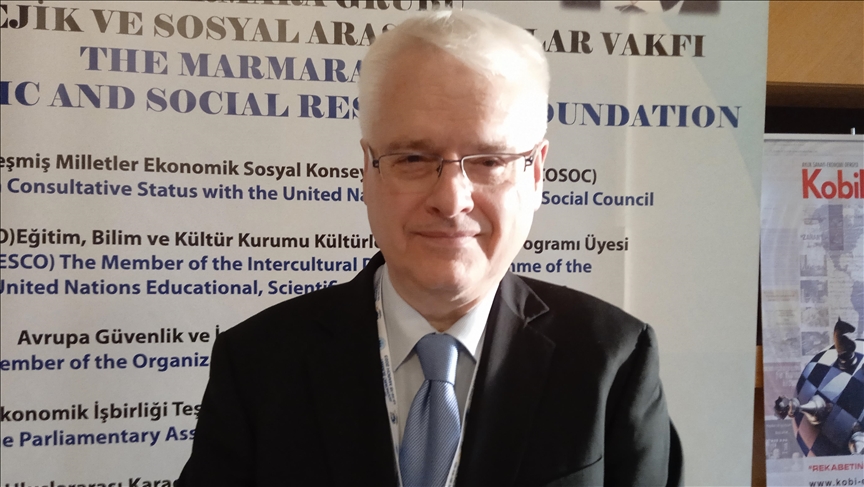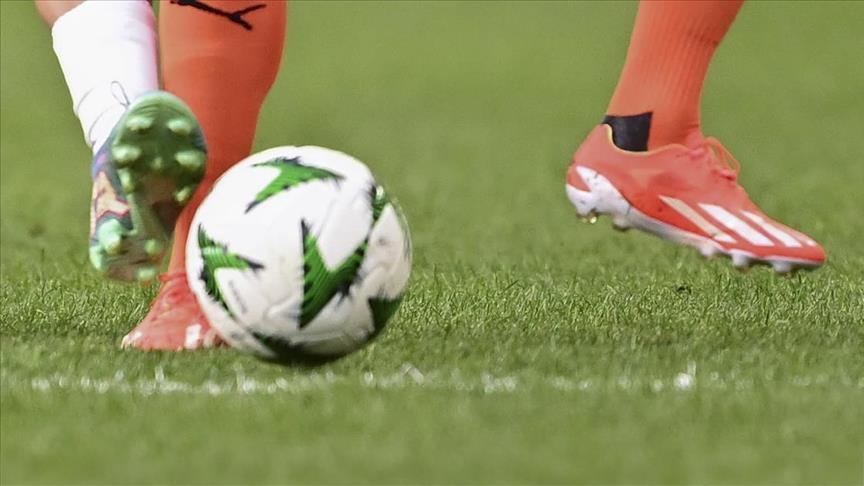Prejudices about religion, fear of ‘strong member’ blocking Türkiye’s EU path: Ex-Croatian president
- Another factor is that ‘some countries are afraid about one new strong member,’ Josipovic tells Anadolu
- ‘I think it will be valuable to do everything to make Türkiye a member of the EU,’ says ex-Croatian president
- Ankara plays a ‘positive role’ in the Balkans, ‘especially to cool down conflict between people of different nationalities in that region,’ says Josipovic
ISTANBUL
The obstacles in Türkiye’s accession to the EU are because of certain prejudices, particularly with regards to religion, and some states’ fear of a “new strong member,” according to Croatia’s ex-President Ivo Josipovic.
“It is a curiosity that Croatia and Türkiye started negotiations to become EU members on the same day,” Josipovic told Anadolu.
Türkiye applied for EU membership in 1987 and has been a candidate country since 1999. It started membership negotiations in 2005, the same time as Croatia, which has since been admitted to the bloc and became its 28th member in July 2013.
Ankara’s negotiations have been at a stalemate after 2007 due to the Cyprus problem and opposition by several EU member states.
“The reason why Türkiye is not a member of EU is different. There are some objections about fulfillment of requirements, but I think more important are some prejudices about Türkiye, especially connected to religion,” said Josipovic.
“It is completely wrong, and should not be the reason to put aside candidature of Türkiye.”
Another factor is that “some countries are afraid about one new strong member,” he added.
“That can also be the reason. So, if I am asked … I think it will be valuable to do everything to make Türkiye a member of the EU,” said the former Croatian leader.
Josipovic also cited the case of North Macedonia, calling out the EU for what he termed an “unjust approach.”
“They (North Macedonia) really did everything what they were asked to do, but that did not result in their membership to the EU,” he said.
“That is not good. That shows that European states do not have the same approach to this process of integration of new countries to the EU. In my opinion, Europe is not complete without other countries, including Türkiye.”
Bilateral ties and Türkiye’s ‘positive role’ in Balkans
Josipovic, who was president of Croatia from 2010 to 2015, hailed Türkiye’s involvement in regional affairs in the Balkans.
Ankara has a “positive role” in the Balkans, “especially to cool down conflict between people of different nationalities in that region,” he said.
“There is political interest in making the region safer, and the contribution of Türkiye is very important,” said Josipovic.
While Türkiye “contributes to stability” in the region, he continued, the main issue of Serbia-Kosovo tensions “can be resolved just by big powers and consensus” between the two sides.
“The same situation is also with Bosnia and Herzegovina. They have a very complicated situation, unfortunately burdened by great tensions between all three components: Croats, Bosniaks, and Serbs,” he said.
Turning to bilateral ties between Croatia and Türkiye, the former president said the two nations have good ties when it comes to economic and defense affairs.
“We have relatively good economic relations. We have investors from Türkiye, especially in tourism … There are also many people from Croatia, mostly mid-business, engaged here in Türkiye,” said Josipovic.
Regarding defense, he said the two nations have trade and practical cooperation, while also working together as members of NATO.
“I think we have very good relations … Definitely there is enough space to widen our economic cooperation and also cultural cooperation … It is very important to share our cultures and to be informed more about each other,” he said.
Anadolu Agency website contains only a portion of the news stories offered to subscribers in the AA News Broadcasting System (HAS), and in summarized form. Please contact us for subscription options.



